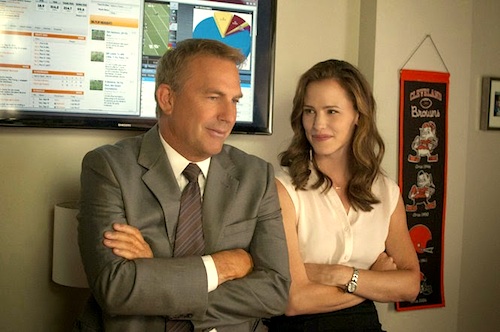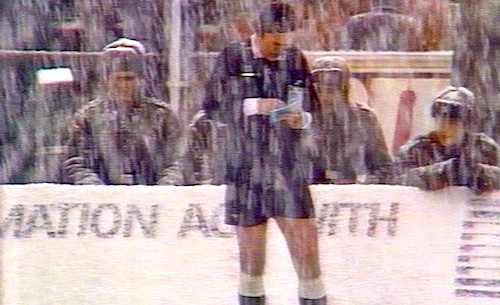By Joe Bendel. There was a time when the sight of a mutant lizard leveling the city of Tokyo would have been somewhat traumatizing. It became a campy tradition, but it started as a surprisingly moody expression of national angst. Sixty years later, Godzilla is still the king of the monsters, but his original uncut 1954 Japanese debut (sans Raymond Burr) will be a revelation for many fans. Coming on the heels of its debut at the 2014 TCM Film Festival, Film Forum pays homage to the granddaddy of all kaiju movies with a special one week engagement of Ishirô Honda’s Godzilla, beginning this Friday.
There are dozens of drastic differences between the version released in the U.S. (with scenes added featuring Burr as American reporter Steve Martin) and Honda’s original high concept apocalyptic morality play. Initially, we do not see Godzilla, but we witness the effects of his handiwork. In an episode reportedly inspired by the Lucky Dragon Incident, a commercial fishing boat has inexplicably disappeared in a remote quadrant of the Pacific. The company responds by sending more ships to the last known coordinates, which only compounds their tragic losses. Of course, we know who is responsible, but Godzilla will not actually show himself, peaking over a mountain ridge in an entrance to rival Harry Lime in The Third Man, until late in the first act.
Dr. Kyohei Yamane suspects the mutant monster dubbed Godzilla (or Gojira) is a nasty by-product of the nuclear age. Destroying such a beast is no easy feat, as the military conclusively proves during their futile defense of Tokyo. As events unfold, the professor’s daughter Emiko finds herself in a uniquely Japanese love triangle, betrothed to the distant Dr. Daisuke Serizawa, but in love with salvage captain Hideto Ogata, who suddenly finds himself all kinds of busy. Serizawa has developed an Oxygen Destroyer that just might be able to stop the rampaging monster, but he refuses to open another Pandora’s Box.
 Of course, Godzilla is all about the monster, but Serizawa is a fascinating character in his own right. He adopts western style dress and furnishings, yet he consents to a traditional arranged marriage. Frankly, he often seems oblivious to Emiko, driven by his obsessions and haunted by his mysterious wartime experiences.
Of course, Godzilla is all about the monster, but Serizawa is a fascinating character in his own right. He adopts western style dress and furnishings, yet he consents to a traditional arranged marriage. Frankly, he often seems oblivious to Emiko, driven by his obsessions and haunted by his mysterious wartime experiences.
There also happen to be real performances in the genuine article Godzilla, including Akihiko Hirata as the brittle and intense Serizawa. Momoko Kōchi also gives an acutely sensitive turn as the conflicted Emiko Yamane. As for screen presence, it is hard to beat Ozu and Kurosawa veteran Takashi Shimura, who would later reprise his role as Dr. Yamane, unless you were a mutant lizard monster.
Yes, most of Godzilla’s scenes were rendered by “Suitmation” (which was exactly what it sounds like), but Honda really focuses in on the human dimension during his now legendary attack. He makes us feel for the people caught up in the terror, rather than glossing over the little people getting stomped on. Obviously, the look of Godzilla caught on, but it is the sound that seals the deal. There is something alarming (even bitchy) about his high-pitched keening roar that gets under the skin. You would absolutely not want to hear anything like it in real life.
By any reasonable critical standard, the original Godzilla qualifies as a good movie—for real. It has far more going on than you would assume for subsequent sequels. Yet, it still delivers the kaiju goods. Sixty years later, Godzilla is still one of the baddest cats to grace a movie screen. If you do not catch him now in his original glory, you risk some profoundly bad karma. Recommended for fanboys and cineastes, the restored, undubbed Japanese Godzilla opens this Friday (4/18) at Film Forum.
LFM GRADE: A
Posted on April 15th, 2014 at 12:04am.





